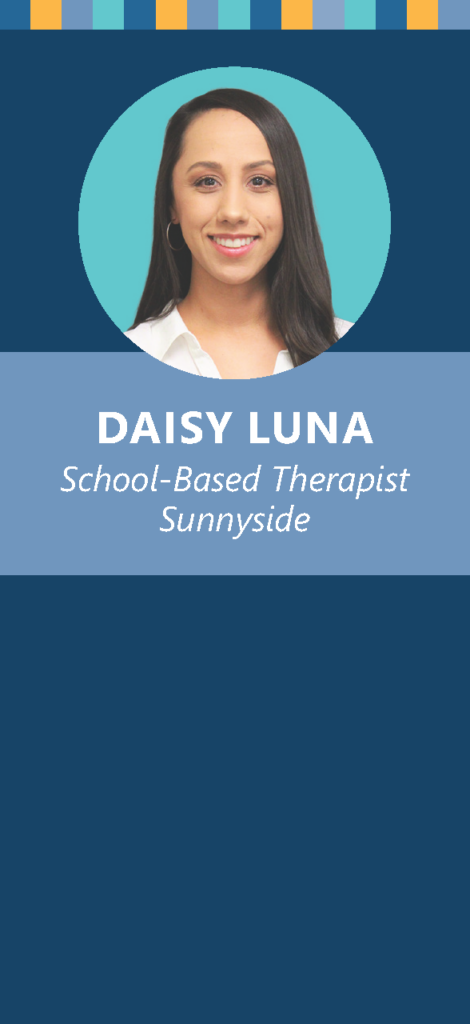
Tell us about how your program serves the community.
As a school-based therapist at Sunnyside High School, I love working with the team at Comprehensive Healthcare in Sunnyside – it feels like family. I’ve worked with programs like WISe and the crisis response team, and it’s inspiring to see how our collaboration helps clients. I serve students during and after school, making therapy accessible, giving them responsibility to attend appointments, and allowing them time to work through issues privately. I’ve seen the impact of school-based therapy firsthand, and I hope it’s adopted more widely across the country.
What drew you to your role at Comprehensive Healthcare?
I’ve always wanted to help people and was drawn to Comprehensive Healthcare by the clear potential it has to make a difference. While pursuing my master’s degree, I worked as a case manager for adolescents and was moved by their stories – working with them showed me that they just needed someone to listen. When the Sunnyside school-based therapist position opened in 2022, I knew it was my next step!
What’s most rewarding about being a school-based therapist?
Seeing the growth of my clients is so rewarding. It’s amazing to see the progress they make from the time they come in to when they are discharged.
What advice would you give to those starting their careers in this field?
Always be patient with yourself, ask questions, communicate with your supervisor, and truly take care of yourself. The first year can be challenging when trying to learn everything that comes with the role you’re in.
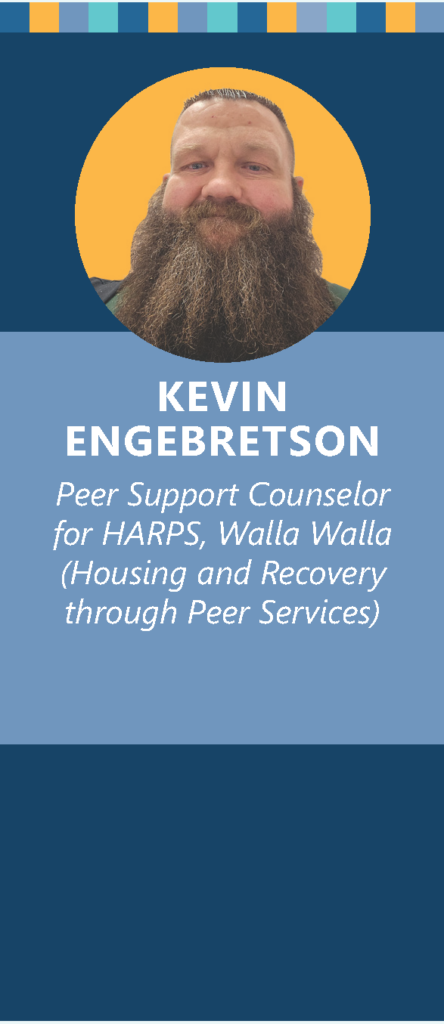
How does your program serve the community?
Housing and Recovery through Peer Services (HARPS) is a grant-funded program that provides short-term financial assistance for individuals exiting inpatient mental health and substance use disorder facilities. It helps cover apartment application fees, move-in costs, utilities, and storage fees, while also offering peer support to help them find, obtain, and maintain stable housing. The program gives clients a second chance at a normal life and a place to call home. Even when others in life have told them “No,” we tell them, “Let’s work as a team and solve this issue together.”
What about your career are you most proud of?
For one, the professionals I work with are the kindest I could have imagined. More than that, I am proud to support clients on their journeys to secure housing, especially those who have either never been housed or have experienced many barriers to housing. Recovery is possible for everyone and looks different for each person.
What drew you to become a peer support counselor?
I was once a Comprehensive Healthcare client, and my life was changed by the
compassion the team brought to helping me. Without Comprehensive Healthcare, I would not be living my best life today.
Do you have any advice for people entering the behavioral healthcare field?
Always provide trauma-informed care to the clients that you serve. Be a sponge – learn new things and remain open to change. Be empathetic to people’s situations, not sympathetic. And finally, make sure to take time for self-care – if you are not at 100%, it is very difficult to give 100% to your peers.
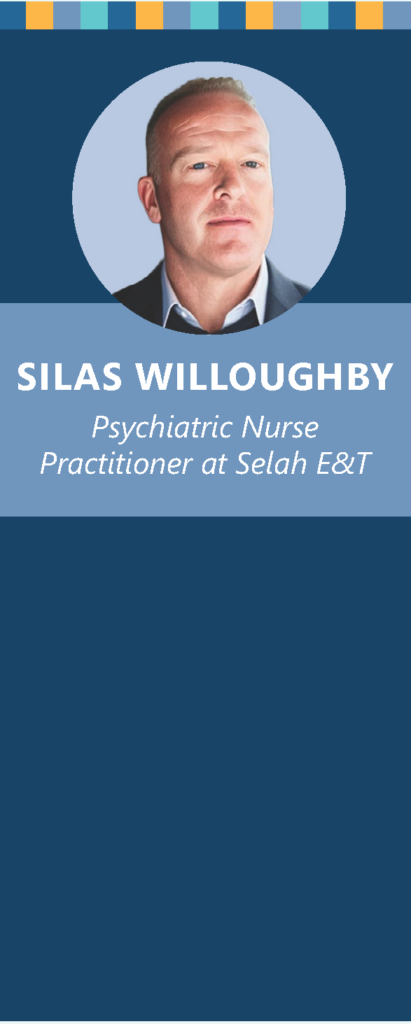
What does your program do for the community?
I work with the acute care inpatient team at the Selah Evaluation and Treatment facility. We stabilize patients who are in crisis, and that may be suffering from suicidal ideation, homicidal ideation, or grave disability and are unable to care for themselves and require acute intervention. We’re able to stabilize and support them with medication management, later helping them reenter the community.
What does a typical day look like in your position?
As a psychiatric nurse practitioner, I spend my day assessing patients’ progress since starting treatment and making adjustments to their care plans as needed. Each morning, our team of providers and staff meets to review patient updates and share insights that inform individualized treatment plans. We also work closely with patients to encourage active participation in group therapy and other supportive services.
What drew you to become a psychiatric nurse practitioner?
My family has a long history of mental illness, including schizophrenia, depression, and substance use, which led me to want to become a provider in this field.
What about your work are you particularly proud of?
Every day, patients leave our facility functional and grateful, often thanking us for
caring and changing their lives for the better.
What do you with your community knew about Comprehensive Healthcare’s role in the community?
Comprehensive Healthcare welcomes community members who have loved ones in an inpatient facility to actively participate in their care, provide vital information to help guide treatment, and support our clients along their journey.
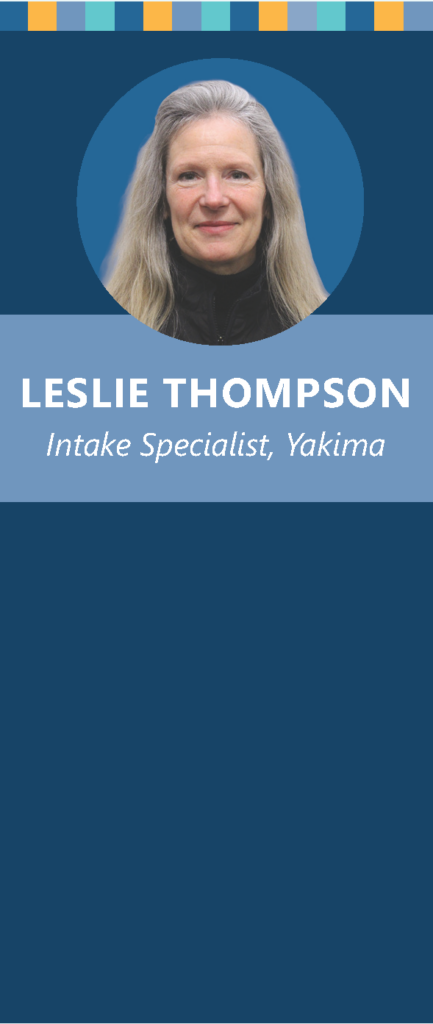
What drew you to work with Comprehensive Healthcare?
Comprehensive Healthcare has wonderful therapists and providers, all of whom offer accessibility for clients to receive the best possible care, and I think very highly of our therapy team.
What do you find rewarding about being an intake specialist?
Helping clients receive the services that they need, beginning with an accurate
diagnosis and pairing individuals with an experienced and knowledgeable therapist, is very rewarding to me. I appreciate being able to have a hand in helping so many lives.
What advice would you give to someone starting a career in the behavioral
healthcare field?
Community outpatient behavioral health is a great place to gain experience by
working with clients from a wide variety of backgrounds and mental health needs.
It was a learning curve for me to get used to the rapid pace of assessments, but it’s vital to helping our community.
What do you want the community to know about Comprehensive
Healthcare?
Comprehensive Healthcare is based on a foundation of collaboration, not only with
families and caretakers of clients, but with other teams, both within and outside of
Comprehensive Healthcare. We also work closely with the community and schools.
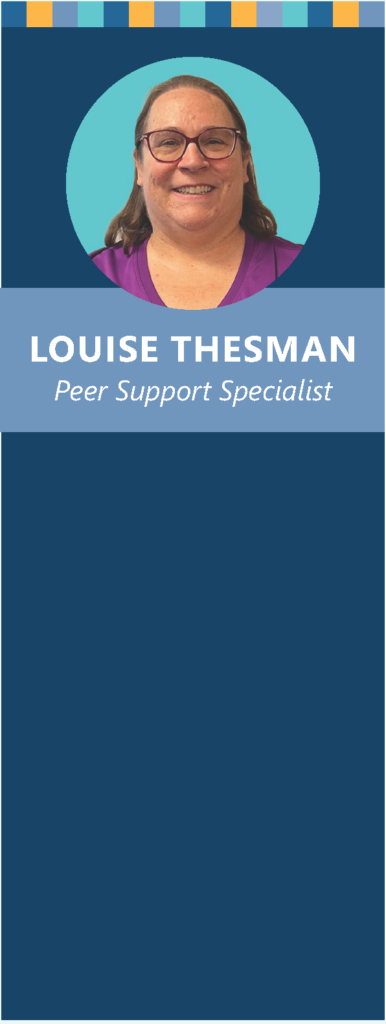
What do you do at Comprehensive Healthcare?
In my role as a Peer Support Specialist, I support clients with mental health struggles and substance use disorders one-on-one, as well as facilitate groups where we discuss mental health strategies for recovery. I value peer support because of my experience with mental illness and addiction recovery. Peers show people they are not alone and that someone understands their journey and recovery potential.
What drew you to your role as a peer support specialist?
I was drawn to Comprehensive Healthcare because I was originally a client here.
Then, for several years I worked as a dental hygienist in the community, and
people would often talk about their lives and the struggles they had during those
appointments. I referred them to Comprehensive Healthcare because it saved my life. When I learned about Peer Support, I knew I could give back what was given to me through this organization, by supporting people through their journeys.
What you do enjoy doing outside of your work at Comprehensive
Healthcare?
I enjoy spending time with my teenage children, watching them grow into responsible adults who love themselves and others. I also have pets who are great listeners, and I love spending time with them. I enjoy baking for neighbors and friends and listening to music whenever I can. I’m proud to facilitate a support group for NAMI, helping people with mental illness, and work with kids at my church, which is very rewarding.
What do you want the community to understand about your role?
There are people here, like me, who can relate to some of the challenges our clients face, and we are willing to walk alongside them to help them see their full potential. It’s possible to meet your goals and learn valuable skills to achieve the life you never thought possible.
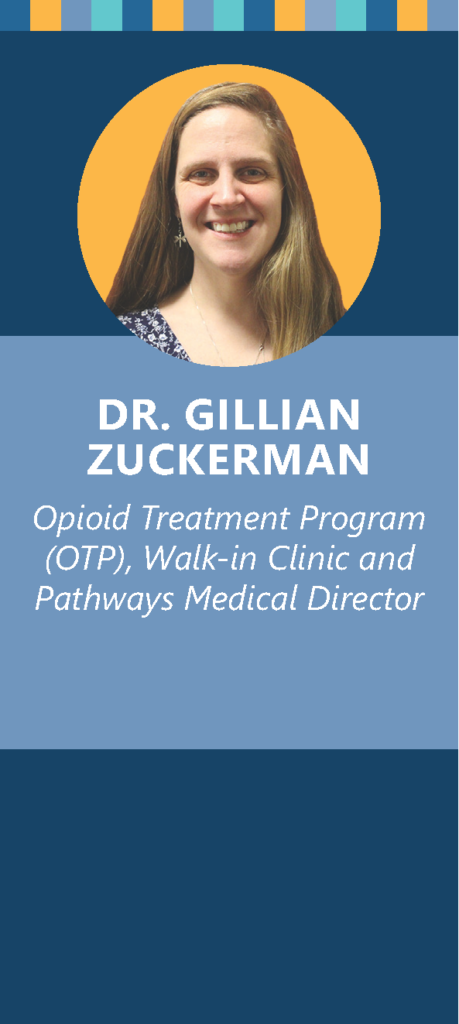
What does a typical workday look like for you?
In my position, I spend much of my time seeing clients at the OTP, assessing their needs, and prescribing medications like suboxone and methadone. I also see patients at Yakima County’s correctional facility. On the administrative side, I work with my fellow admin and staff to ensure the programs I oversee are functioning well.
What drew you to your role at Comprehensive Healthcare?
After three years practicing family medicine and providing addiction treatment at a clinic in Yakima, I was excited to join the Comprehensive Healthcare team to further treat substance use disorder (SUD) patients by prescribing methadone. It’s truly rewarding to have the ability to dispense methadone to clients and observe their recovery journeys.
What are you most proud of in your work?
I’m blessed to see the recovery journey of each client – I’ve worked with folks who couldn’t stabilize initially and have now been sober for over a year! It’s exciting when they’ve made changes to their life they’re proud of, even if they haven’t reached the finish line yet. The incremental steps and victories carry progress forward. I feel fortunate to witness people stabilizing on methadone and finding success.
Do you have any advice for someone beginning a career in this field?
Be kind to yourself and remember you’re human; mistakes are normal – there’s no perfect solution for any of this! It’s important to connect with the person directly in front of you and collaborate on a human level.
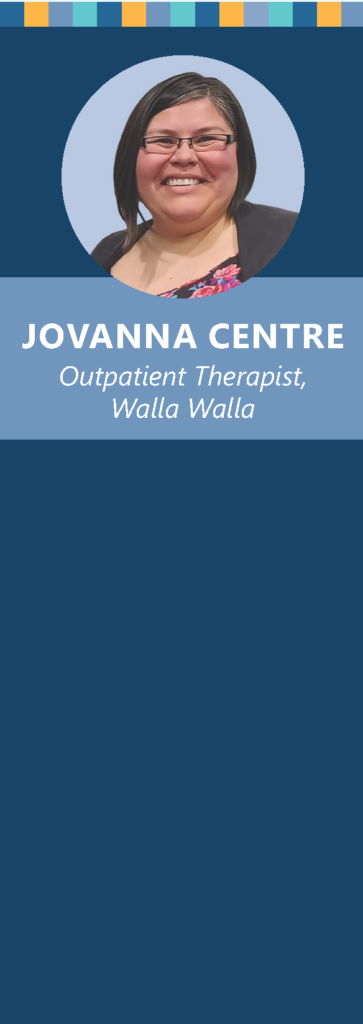
What do you do each day in your role?
Each day as an outpatient therapist is different – which is something I enjoy about working at Comprehensive Healthcare. I work mainly with adults and elders, providing individual and group therapy and conducting intake mental health assessments twice a week at various locations.
Another role I fill is an Illness Management and Recovery (IMR) consultant, where I’m responsible for overseeing chart reviews, group observations, monthly
consultations and staff training for IMR. I’m also proud to be an at-large member of Comprehensive Healthcare’s Justice, Equity, Diversity and Inclusion
(JEDI) committee, which addresses service and care improvements through
discussion and problem-solving.
What drew you to this role at Comprehensive Healthcare?
I originally worked at Comprehensive Healthcare as a Day Support/Clubhouse
Coordinator, offering a safe, sober environment for clients, along with ongoing
symptom monitoring and care coordination. When I pursued my master’s degree
in social work, I shifted to a therapist-in-training role and completed my clinical
field of practice. Over my eight years at Comprehensive Healthcare, I’ve taken on additional roles and found a variety that aligns with my career goals.
What do you find most rewarding?
One of my passions is to provide therapy to Native communities as a telehealth
provider for Yakima County and those living in Walla Walla County. It’s a rare
opportunity to have a provider with a shared identity and cultural background
available to provide therapy to other Native Americans. I’m deeply aware of the
history of ongoing oppression and racism that exists in American society, and it’s
not common to encounter a professional that looks like ourselves or family. My
goal is to infuse cultural considerations into clinical practice for Native clients, with an active recognition that culture and background influences our health beliefs, behaviors, and preferences, in order to provide more effective and equitable care.”
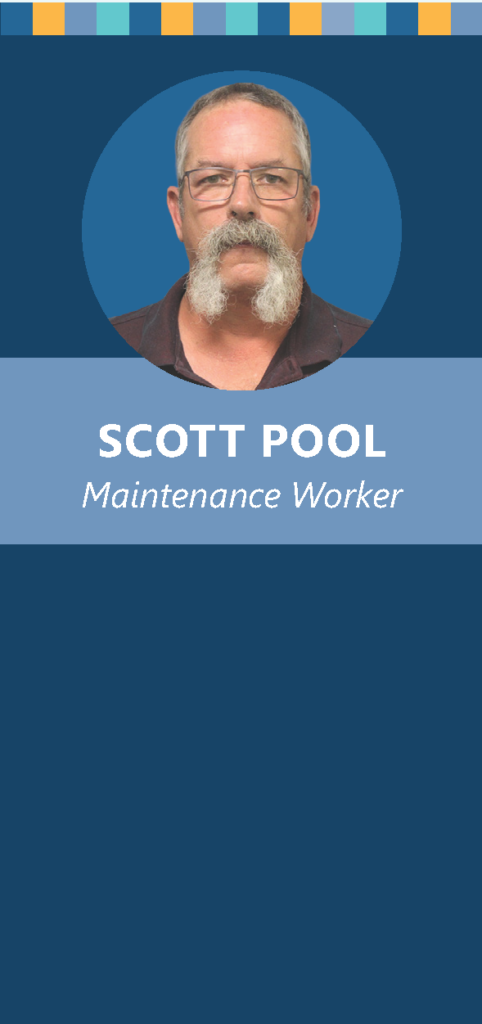
What do you find rewarding about your position at Comprehensive
Healthcare?
I like using my cabinetry and carpentry skills here at Comprehensive Healthcare to
help create a more comfortable environment for our residents. I’ve built countertops at some of our commercial buildings, adding value to the different sites. I enjoy being part of the organization’s success and working with our maintenance and staff members.
What advice would you give to those starting their careers in this field?
Don’t be afraid to ask fellow maintenance staff members questions; they may have
a better way to do certain tasks, or an easier way to repair a specific item. There is
never a stupid question, but there is always an answer!
What do you enjoy doing outside of your position at Comprehensive
Healthcare?
Outside of Comprehensive Healthcare, I serve as a trustee on the Vintiques car
club board. I’ve been a member for 35 years and have collaborated with different
charities like YWCA, Rod’s House, Veterans Food Bank and Children’s Wishes and
Dreams to raise funds. I enjoy visiting the retirement home to share my vintage cars with residents, putting smiles on their faces and even sometimes giving them rides.


